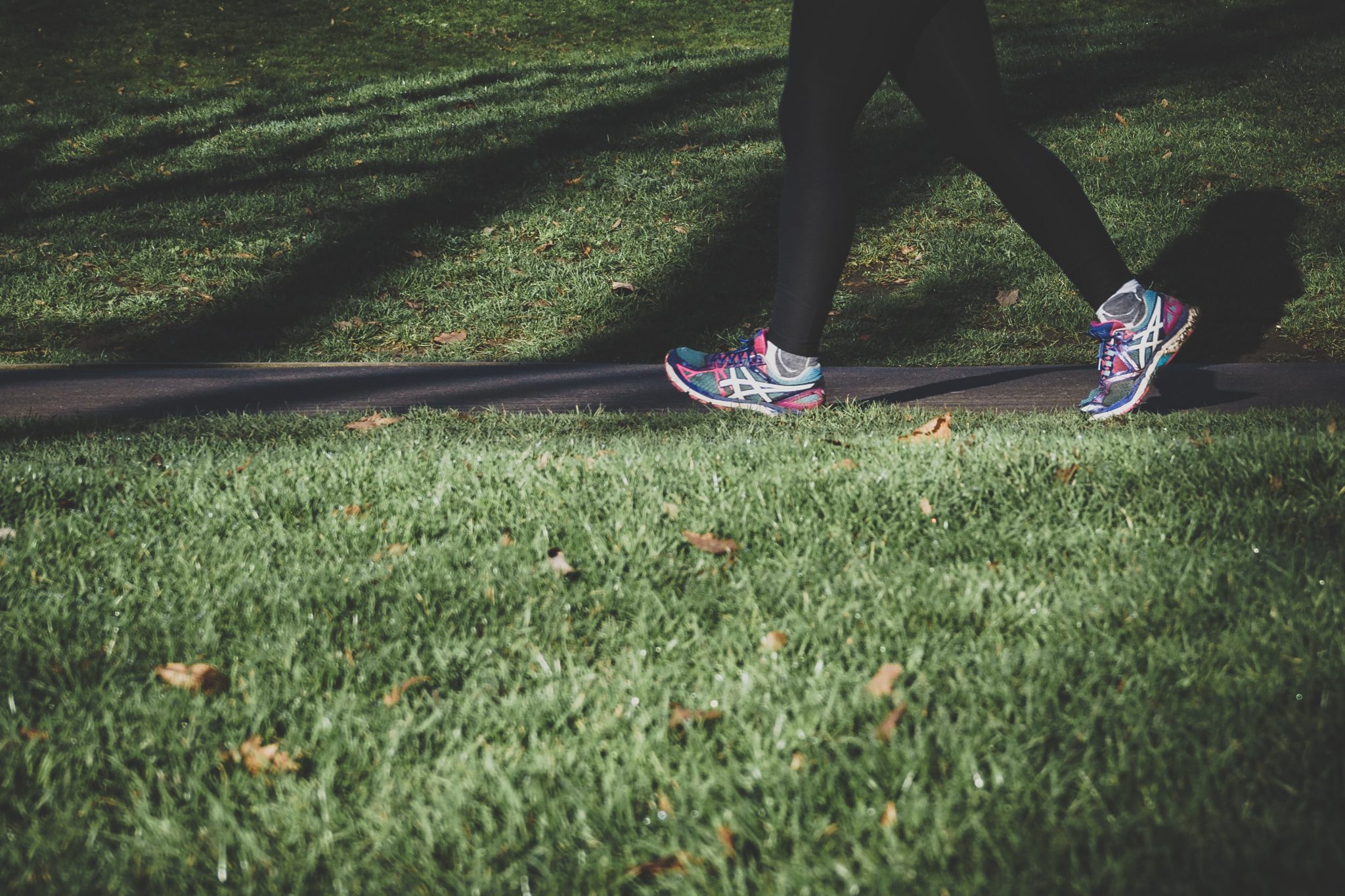
Exercise doesn’t need to be high-intensity to be great for your mind and body. In fact, walking can be just as good for your health as running, making it the perfect exercise option for people who are injured.
Running has been the go-to for many people looking to keep on top of their fitness during the past year. But high-impact exercise won’t work for you if you’re one of the many people who’ve suffered an injury thanks to home workouts or poor desk posture.
More and more of us have also taken up walking. New data from the exercise app Strava shows there was a huge upturn in walking during lockdown – with 6.3 times more walkers in London and the South East compared to the same time last year. While a recent TfL report said 31% of Londoners chose to walk instead of using a different mode of transport last year.
So even though running has many benefits – including helping to reduce stress, improve cardiovascular fitness and strengthen muscles – walking is much more gentle and can still pack in many similar positive outcomes. Plus, if you simply don’t like running, going for a walk that you might actually enjoy will ultimately be better for your mental health.
You may also like
Best, most picturesque walks in the UK to try this summer
What are the benefits of walking?
Walking reduces the risk of heart disease
In a study published by the American Heart Association, researchers found that “for the same amount of energy used, walkers experienced greater health benefits than runners”. For example, while running reduced the risk of heart disease by an average of 4.5%, walking reduced it by an impressive 9.3%. Similarly, the risks of high cholesterol and high blood pressure were both reduced more substantially by walking than they were by running.
Walking reduces the risk of injury
You are also far more likely to avoid injury if you walk rather than run. Running puts your body under a lot of stress, and the higher the intensity, the more likely you are to hurt yourself. In fact, a study of 5,327 runners and walkers carried out over eight years found that runners were 25% more likely to develop an injury than walkers. Some of the most common injuries include shin splints, runner’s knee, tendonitis and stress fractures. The risk of getting one of these injuries was even higher for ultra-long distance runners.

You may also like
Walking for just 17 minutes a day has a dramatic effect on your health
Walking, on the other hand, carries very little injury risk, making it a safer way to work on your fitness. If you want to up the intensity of your workout without ramping up the risk, you could try wearing a weighted vest or speed walking. Upping the incline is another effective way to make your walk more challenging, which you can do easily if you’re on a treadmill. If you’d rather walk outside though, you could try hiking in a hilly place.
Walking improves your mental health
Not only is walking good for you physically, but it’s also great for your mental health – especially if you walk outdoors. Walkers can take their time, take in their surroundings, and really enjoy being out and about, while runners are usually more focused on beating their PB. But taking the opportunity to walk in a serene environment at a pace that suits you has been found to massively boost happiness. In fact, a study conducted by the University of Vermont found that walking in a green space such as a park or a forest can actually improve your mood just as much as Christmas does.

How to improve your walking workout
This doesn’t mean to say that walking can’t be more intense. If you’re the competitive sort, then racewalking might just be for you. Racewalking is a much more technical form of walking than regular or speed walking, with specific rules and a distinct technique. It’s a great way to compete in distance races if you don’t fancy running – and it’s likely you’ll finish ahead of a lot of the runners anyway. There are also racewalking competitions, which can take you all the way up to Olympic level.
While running is undoubtedly a great form of exercise, don’t be fooled into thinking that walking isn’t also great for your mind and body. If you can’t run or simply don’t want to, try taking up walking. It can do amazing things for your health, fitness, and motivation.
You may also like
Walking for mindfulness: “How I learnt to reap the mental health benefits of mindful hiking”
Follow @StrongWomenUK on Instagram for the latest workouts, delicious recipes and motivation from your favourite fitness experts.
Image credit: Unsplash
Source: Read Full Article